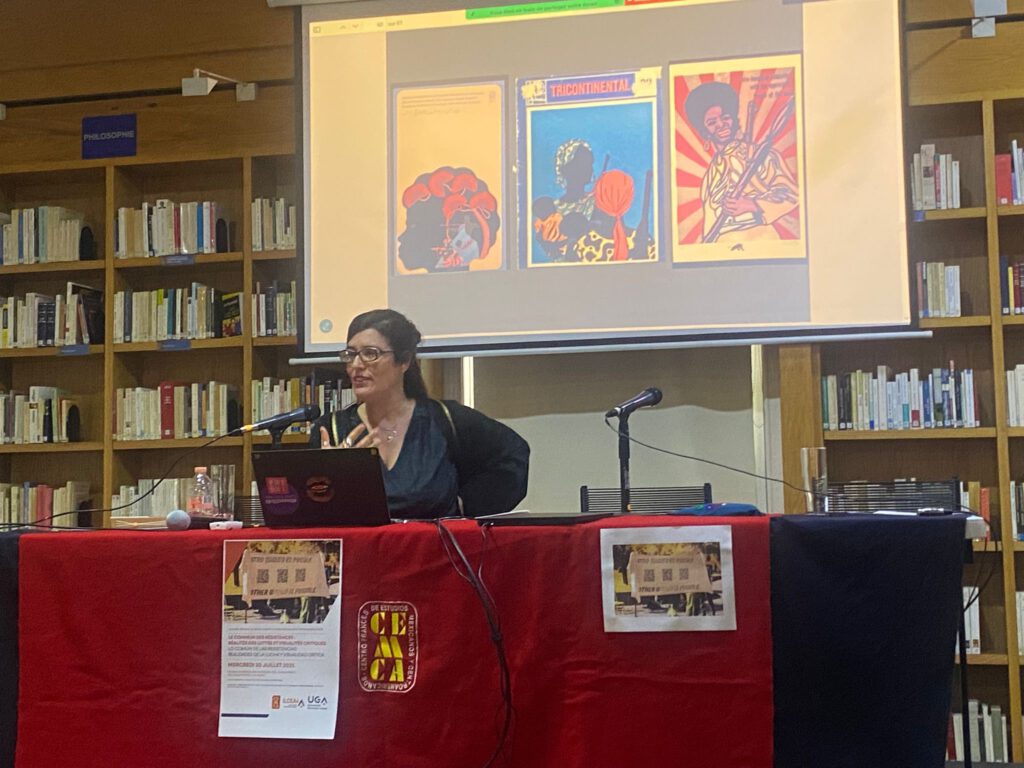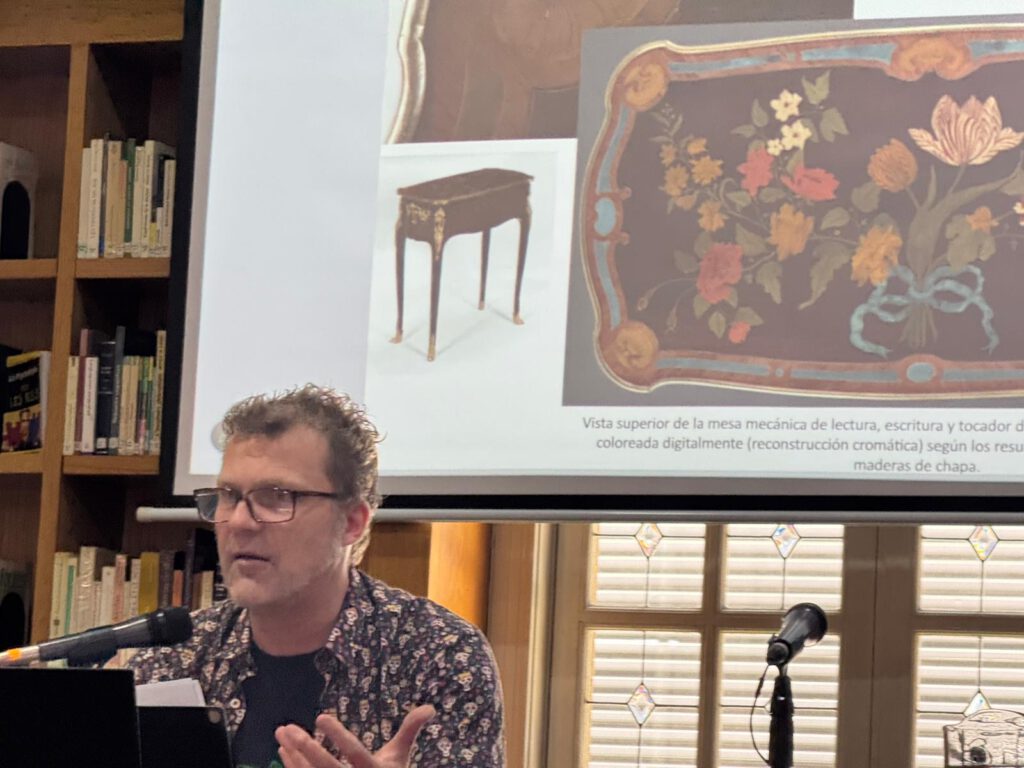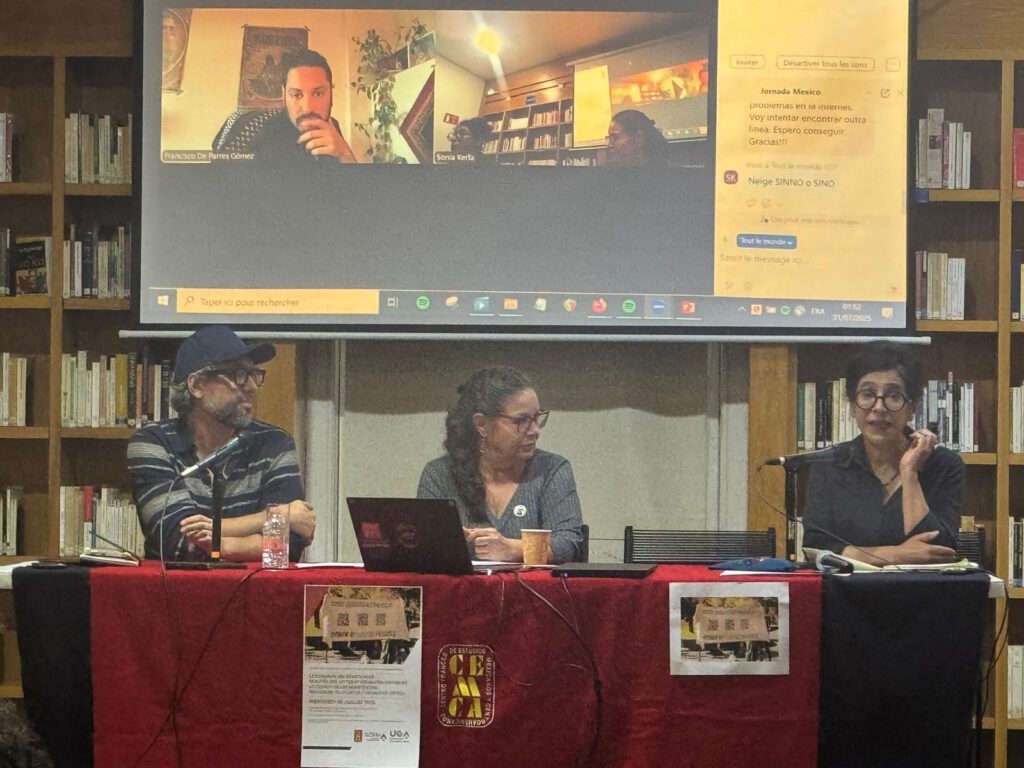Symposium
The Commons of Resistance: Realities of Struggle and Critical Visuality
30 July 2025
Casa de Francia – Havre #15, Juárez, 06600, CDMX
Traditionally associated with natural spaces and collectively shared lands, the notion of the commons today encompasses far more: collective models of production, distribution, and creation across a broad spectrum that intersects with the social, economic, cultural, and cognitive spheres throughout history—even if the enclosure movement is conventionally regarded as foundational. Following decades of ideological conditioning shaped by Garrett Hardin’s seminal article “The Tragedy of the Commons” (1968), the empirical work of the American economist Elinor Ostrom decisively challenged the thesis of inevitable depletion of shared resources by their users. Ostrom demonstrated that, contrary to Hardin’s assumptions, communities engaged in the collective governance of common goods have effectively devised arrangements to preserve them.
While the environmental movement underscores the urgency of a collective response to the socio-ecological crisis—particularly in light of the depletion of natural resources and energy (Santiago Muiño, 2021)—Donna Haraway’s recent contributions posit that survival amidst the ecological collapse of the Earth in the era of mass extinction—brought about by the Anthropocene (or “Capitalocene,” as she terms it)—requires not only human solidarity, but also interspecies cooperation and the constitution of a multispecies commons (Haraway, 2020). According to Dardot and Laval, the commons possess multiple potentialities, as evidenced by their diverse operational forms in the early twenty-first century: “The struggles for ‘real democracy,’ the ‘movement of the squares,’ the new ‘springs’ of the peoples, student mobilizations against the neoliberal university, popular movements advocating democratic control over water distribution—these are not chaotic or fortuitous events, accidental and ephemeral outbursts, or scattered rebellions without direction. These political struggles reflect the political rationality of the commons; they are collective pursuits of new democratic forms” (Dardot and Laval, 2015). These forms are intrinsically linked to specific visual and cultural practices (Mirzoeff, 2020), which play a crucial role in shaping and distributing the social configurations envisioned by the commons.
This symposium seeks to undertake a transnational inquiry into the formation and implementation of collective community organizations, with a particular focus on interrogating their cultural, and visual productions. Our approach privileges an analysis along two primary axes: first, the imaginaries and cultural practices of the commons, their visual cultures, and their impact on contemporary artistic practices, as well as on the shaping of political imagination and practices of visibility aimed at articulating demands for justice and human rights (including the occupation of squares, land, and buildings, and co-creation in shared spaces); and second, the (subaltern) agents of the commons: women, migrants, and LGBTQ communities.
Gallery9.30. Welcome
10.00 Opening of the symposium by Maya Collombon and Sonia Kerfa
10.30-11.00 Francisco de Parres (Universidad Veracruzana, Veracruz), Ecologías creativas, antropoceno y el común en el arte del Sureste mexicano
11.00-11.20 Debat
11.20-12.10 Tobias Locker (Saint-Louis University, Madrid), Expropiar lo común: Ontologías y estéticas de la materia en la Edad Moderna
12.10-12.30 Debat
12.30-14.00 Break
14.00-14.30 Paula Barreiro López (Université Toulouse II Jean Jaurès), Contravisualidades tricontinentales y comunalización visual
14.30-14.50 Break
14.50-15.20 Sonia Kerfa (Université Grenoble Alpes), El cine de intervención como práctica feminista en América Latina o cómo visualizar en común otras historias
15.20-15.40 Debat
15.40-16.00 Break
16.00-16.30 Cristina Híjar (Centro de Investigación de Artes Plásticas del INBAL), Praxis estética: retos, compromisos y estrategias colectivas por memoria, verdad y justicia
16.30-16.50. Debat
16.50-17.00 Closing of the symposium
Gallery



Organization: Sonia Kerfa (CERHIS-ILCEA4, Université de Grenoble Alpes) in collaboration with Maya Collombon (Director CEMCA, Mexico City)
Image: Ella Daniel, Another world is possible 2, s/f.

